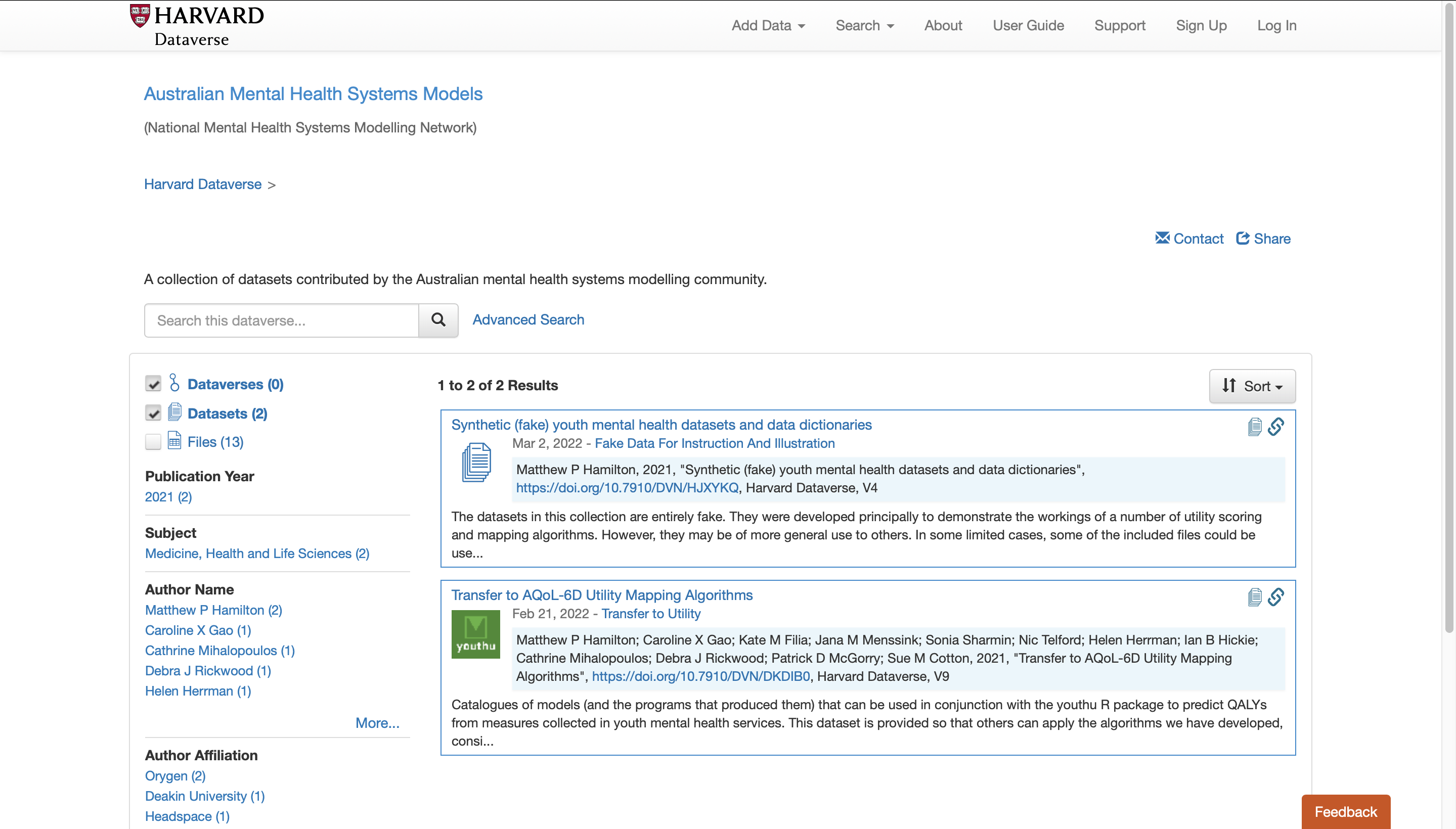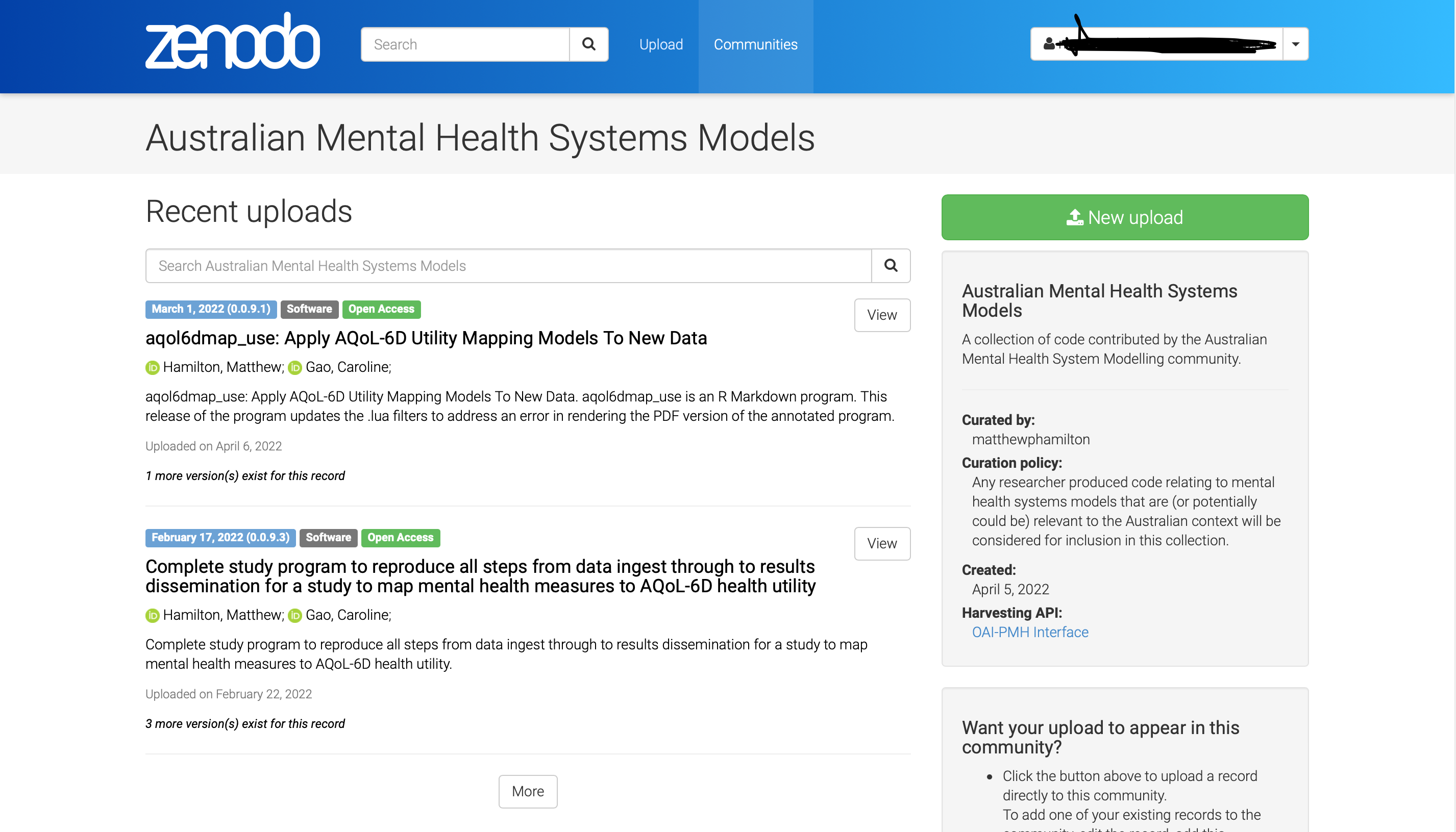Why share model code and data?
There are many benefits to sharing model code and data in open access repositories. These benefits include helping to: demonstrate study reproducibility; improve model transparency; elicit feedback; identify errors; increase impact; and reduce duplication of effort across the mental health modelling field. However, there are also practical barriers to sharing model code and data in an appropriate manner. These barriers can include: concerns about data confidentiality and privacy; confusion about licensing; the need to identify appropriate storage and dissemination platforms; the time and effort required to prepare, document and curate content for public release; and lack of technical knowledge.






